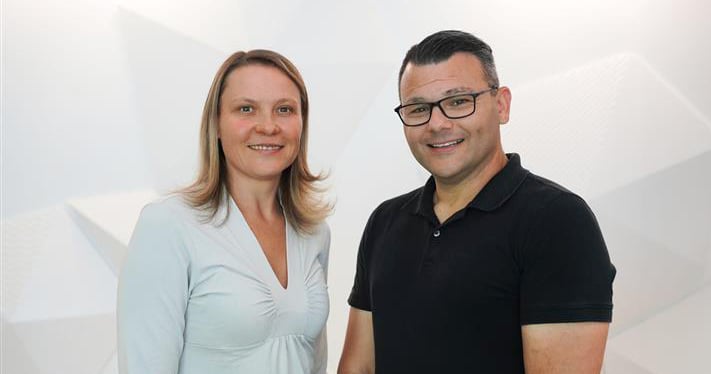
Two researchers from The Kids Research Institute Australia’s Wal-yan Respiratory Research Centre have secured lucrative fellowships to advance cutting-edge phage therapy research for people living with cystic fibrosis (CF).
Associate Professor Anthony Kicic and Dr Yuliya Karpievitch have each been awarded a 2025 WA Cystic Fibrosis Research Collaborative Program – Stream 3 Fellowship, valued at up to $450,000.
Co-funded by the FHRI Fund and Cystic Fibrosis WA, in partnership with Conquer Cystic Fibrosis WA, the annual fellowships support bold, innovative research aimed at improving the lives of people living with CF.
Associate Professor Kicic is investigating how bascteriophage or “phage” therapy can be harnessed to fight infections in vulnerable populations.
Antibiotic resistance is making it harder to treat infections, and by 2050, it's expected to cause more than 10 million deaths each year. In Australia, this issue is especially serious because antibiotics are heavily used in people with chronic conditions, like CF. Since no new antibiotics are being developed, we urgently need other options.
Associate Professor Kicic’s project will focus on developing phages into safe and effective medicines. Phages are natural viruses that kill bacteria, offering a promising alternative to antibiotics. With no standard process currently in place for making phage treatments suitable for human use, his team are developing Good Manufacturing Practices (GMP) to ensure phages are produced safely, consistently, and at scale.
“We will validate our data-driven quality control processes and effectively monitor phages as they are produced, so that they meet GMP criteria,” Associate Professor Kicic said.
“Our goal is to provide an effective, safe treatment option that will shorten hospital stays, save lives as well as reduce the healthcare burden associated with severe AMR infections.”
Dr Yuliya Karpievitch is leading the implementation of artificial intelligence (AI) to dramatically reduce the time needed to match phages to the right bacteria for treatment.
Her team is developing an AI-powered platform to match phages in under 24 hours – a critical window to prevent permanent lung damage and other complications caused by delayed treatment.
“I will incorporate this technology into an online platform called "PhageBnB" – an "Airbnb" for phages,” Dr Karpievitch said.
“PhageBnB will provide a global network connecting phage providers so that WA-based phages can treat infections worldwide – and vice versa – unlocking global delivery for better CF outcomes.”
The Wal-yan Respiratory Research Centre is a powerhouse partnership between The Kids Research Institute Australia, Perth Children’s Hospital Foundation and Perth Children’s Hospital.
